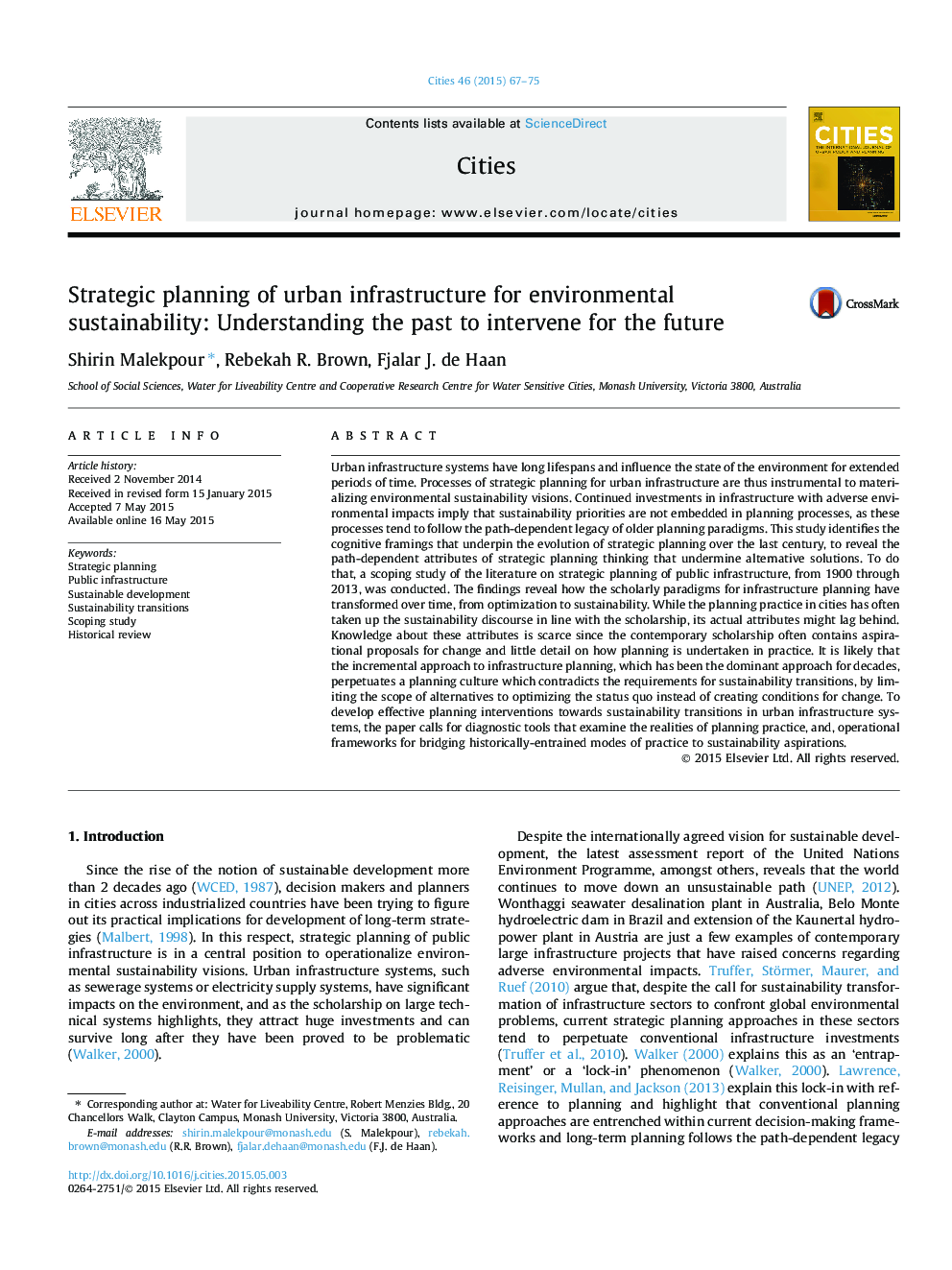| کد مقاله | کد نشریه | سال انتشار | مقاله انگلیسی | نسخه تمام متن |
|---|---|---|---|---|
| 1008260 | 1482350 | 2015 | 9 صفحه PDF | دانلود رایگان |
کلمات کلیدی
1. مقدمه
2. متدولوژی
2.1. جمع آوری اطلاعات
2.2ترکیب اطلاعات به دست آمده
2.3. اعتبار یافته ها
3. یافته ها و بحث
3.1. فازهای کیفی به لحاظ تاریخی
جدول 1. ماتریس اطلاعاتی ارائه شده برای مفاهیم کلیدی در مورد برنامه ریزی استراتژیک بر روی زیرساخت های عمومی
3.2. تغییر پارادایم ها از محیط عقلانی و جنبه های برنامه ریزی
4. کاربرد یافته های ما برای سیاست گذاری و برنامه ریزی استراتژیک در جهت پایداری محیط زیست
سپاسگزاری ها
• Infrastructure planning is instrumental to materializing sustainable development.
• Current planning seems to follow the path-dependent legacy of older paradigms.
• A typology of phases of evolution of strategic planning thinking is presented.
• The attributes of legacy planning approaches may disable sustainability transitions.
Urban infrastructure systems have long lifespans and influence the state of the environment for extended periods of time. Processes of strategic planning for urban infrastructure are thus instrumental to materializing environmental sustainability visions. Continued investments in infrastructure with adverse environmental impacts imply that sustainability priorities are not embedded in planning processes, as these processes tend to follow the path-dependent legacy of older planning paradigms. This study identifies the cognitive framings that underpin the evolution of strategic planning over the last century, to reveal the path-dependent attributes of strategic planning thinking that undermine alternative solutions. To do that, a scoping study of the literature on strategic planning of public infrastructure, from 1900 through 2013, was conducted. The findings reveal how the scholarly paradigms for infrastructure planning have transformed over time, from optimization to sustainability. While the planning practice in cities has often taken up the sustainability discourse in line with the scholarship, its actual attributes might lag behind. Knowledge about these attributes is scarce since the contemporary scholarship often contains aspirational proposals for change and little detail on how planning is undertaken in practice. It is likely that the incremental approach to infrastructure planning, which has been the dominant approach for decades, perpetuates a planning culture which contradicts the requirements for sustainability transitions, by limiting the scope of alternatives to optimizing the status quo instead of creating conditions for change. To develop effective planning interventions towards sustainability transitions in urban infrastructure systems, the paper calls for diagnostic tools that examine the realities of planning practice, and, operational frameworks for bridging historically-entrained modes of practice to sustainability aspirations.
Journal: Cities - Volume 46, August 2015, Pages 67–75
